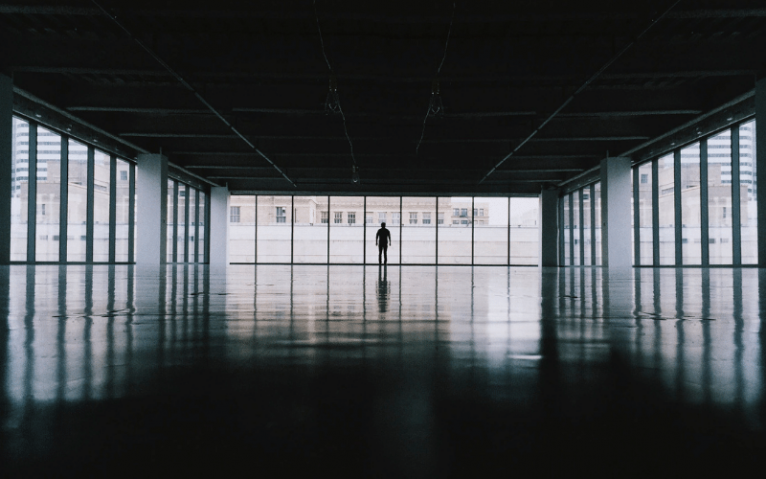Addiction often means loneliness and isolation. However, recovery is the opposite. Addicts and alcoholics rely on their support networks to stay sober and sane, especially during hard times. Unfortunately, with the coronavirus pandemic and social distancing, socializing is the exact opposite of what we should be doing. Coping with isolation during the COVID-19 shutdown can be incredibly hard for people in recovery. Learning how to deal with isolation as a recovering addict is vital for long-term sobriety.
How Coronavirus Impacts Individual Recovery
Figuring out how to deal with isolation isn’t the only trouble recovering addicts face. Due to the pandemic, AA meetings, addiction treatment centers, and even hospitals had to shut their doors, leaving those in need handicapped.
In addition to these complications, people who suffer from active addiction might be at even higher risk of contracting COVID-19. The National Institute on Drug Abuse shared that the use of some drugs, primarily through smoking, can increase respiratory issues.
Because COVID-19 causes respiratory problems, people who have damaged their lungs through inhaling marijuana, methamphetamine, or other drugs may suffer more impacts if they get the virus.
How to Deal with Isolation
Isolation isn’t a foreign concept for most recovering addicts. Often, people who undergo addiction treatment feel isolated from their family members, friends, and even society. While others might surround them in recovery, the feelings of isolation relate more to their illness and inability to connect with others. Here are some strategies to help you cope with isolation:
- Join virtual meetings: It might not be the same as an in-person meeting, but it provides a chance to connect with others in recovery. You can still meet new people and fight those feelings of isolation and loneliness.
- Stay in touch with friends: Sometimes, checking on others can take us out of one’s sense of loneliness; call your family and friends regularly. A quick phone call or a video call where you can mimic a face to face encounter can help you feel connected.
- Maintain a routine: Trying to stay as “normal” as possible can help fight depression and anxiety. Keep an eating and sleeping routine to help you stay as healthy as possible.
- Call your sponsor or therapist: Take advantage of extended telehealth access to discuss how isolation is impacting your mental health with a therapist.
- Spend time outdoors: Fresh air and smiling at the neighbors (from a safe distance of 6 feet) can boost your mood and clear the mind. Go for a long run if you can to reduce stress.
Managing Anxiety Levels in Isolation
One of the biggest struggles people in isolation experience is anxiety. When you’re dealing with an immeasurable amount of stress, anxiety can easily creep in when you worry about the news and other things happening. When you start to feel anxious, trying to stay at home can be difficult.
Not to mention, as a recovering addict, you also have the added pressure of a possible relapse while you’re in isolation. To help you manage your anxiety, make sure to practice these activities:
- Yoga, stretching, and in-home exercise
- Meditation and prayer
- Making art and listening to music
- Eating regular, healthy meals and getting enough sleep
- Taking breaks from social media
- Reading, puzzles, games, or anything that keeps your mind occupied
- New hobbies, like learning to bake or knit
- Keeping in touch with friends
- Being gentle with yourself
Remember, while you want to stay informed about the latest happenings regarding the virus, you also need to take breaks from the news. If you notice that your anxiety levels spike up when you can’t get away from the news, it might be time to cut back. Focus on the things you can control instead of the uncontrollable.
How to Get Help
Fortunately, while some drug treatment centers have closed, many others have implemented strict policies to prevent spread and still offer quality care. Many offices provide telemedicine for treatment, medication, and general medical concerns.
These times are tough and uncertain, but no matter what, drinking or using will never be the answer. If we unite together, support one another, and look out for our neighbor, better times are certainly ahead.
At Lighthouse Recovery Institute, our treatment center remains open. Whether you’re struggling with an ongoing addiction or you need to find aftercare support, we’re here to help you. Our committed therapists are following all guidelines and safety measures to guarantee our patient’s safety and our team’s safety.
Isolation can wreak havoc on your addiction recovery journey; don’t let it get the best of you. If you or someone you know is struggling with their addiction recovery, please reach out for assistance today. We’ll help you navigate the ins and outs of dealing with isolation and work together to help you develop coping mechanisms that help you achieve long-term recovery.









